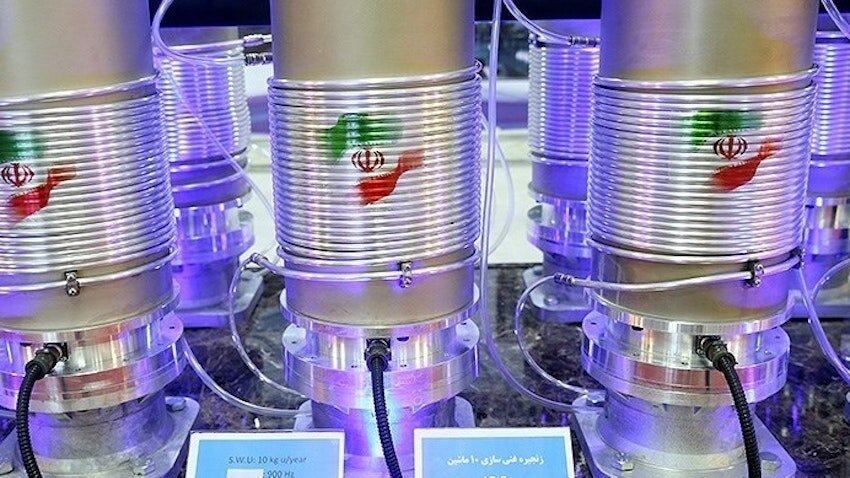Tehran – In the ongoing tensions surrounding Iran’s nuclear program, one important fact is often buried under intense political debate. As a member of the Nuclear Non-Proliferation Treaty (NPT), Iran has a clear legal right to enrich uranium for peaceful purposes.
Iran’s abandonment of enrichment activities not only contradicts international law, but also argues for us ongoing that it undermines the global norms of diplomatic relations that Washington argues to defend.
Founded in 1970, NPT serves as the basis for global nuclear policy. Article IV clearly states that all signatories have the “inviolable right” to develop nuclear technology for peaceful applications without discrimination.
Meanwhile, Iran consistently states that its uranium enrichment is intended for energy production and medical purposes only. Uranium enrichment levels are usually around 3% to 5% for nuclear power. Recent reports from the International Atomic Energy Agency (IAEA) show that Iran has increased enrichment to a higher level, but international law does not expressly prohibit enrichment itself, as long as it remains for civilian purposes.
Our attitude: political, not legal argument
The US claims that Iran enrichment poses a spread risk and calls for a complete halt. However, this attitude is fundamentally political and lacks strong legal justification.
Despite Iran’s first full compliance, the withdrawal of the Trump administration from the JCPOA in 2018 greatly undermined diplomatic credibility. The recent indirect negotiations mediated by Oman, along with a well-known visit to West Asia by former President Donald Trump and his envoy Stephen Witkov, highlight the complexity of these debates.
One important point to mention here is that US negotiators knew from the start that uranium enrichment represented an uncompromising “red line” in Iran. It is unrealistic to launch consultations under conditions that require a halt of enrichment, indicating either a lack of understanding or a ignorance of Iran’s solid diplomatic stance.
Double standards and reduced trust
US reliability is further undermined by clear double standards. Countries such as Brazil, Argentina, Germany, and Japan all have uranium enrichment programs under the supervision of the IAEA without facing similar scrutiny or pressure. Unique attacks on Iran based on geopolitical factors undermines the integrity of global non-diffusion systems.
If rights granted by the NPT are selectively applied based on political alliances and agendas, the entire framework could collapse. If the state recognizes that these rights could be arbitrarily revoked, then he would think there is little reason to adhere to the norms of non-proliferation and disarmament.
For Iran, uranium enrichment goes beyond private purposes, providing important strategic leverage and serves as a deterrent. Given the regional tensions, Iran considers its nuclear capabilities to be important for national security, making the demand for a complete halt strategically unrealistic and politically impossible.
Iran’s Peaceful Nuclear Program: Sovereignty
As I said before, the unwavering pursuit of Iran’s peaceful nuclear program is more than just a policy choice. It is an intransitable right that is firmly rooted in the issues of international law and the sovereignty of the state. As a signatory to the NPT, Iran consistently confirms its right to develop, research, produce and utilize nuclear energy for peaceful purposes without discrimination. This right, surrounded by Article IV of the NPT, is a fundamental principle of global non-proliferation, and Tehran’s consistent compliance with its obligations, including strict inspections by the International Atomic Energy Agency (IAEA), underscores transparency and commitment to the future of non-military nuclear.
To require Iran to abandon legitimate enrichment activities is to deny sovereign states a legitimate place in the global science and technology community. Iran has invested a significant number of national resources for decades and decades to achieve self-sufficiency in the nuclear fuel cycle, including unfair sanctions and the sacrifices of its brightest scientists. This indigenous motivation for capabilities did not arise from a desire for weapons, but from a painful history where external promises of the nuclear fuel supply of medical reactors were found to be unreliable. Therefore, the ability to enrich uranium within the country is considered a testament to critical assurance of future dependence and national resilience.
Ultimately, Iran’s peaceful nuclear program is a symbol of its independent spirit and dedication to scientific progress. It serves as an important element of national security doctrine and provides deterrent against potential attacks without seeking the development of nuclear weapons, which are explicitly forbidden by religious decrees from Iranian leaders. Attempts to reduce Iran’s legitimate nuclear rights not only contradict international law, but also ignore the domestic consensus and national resolve to maintain this important aspect of Iran’s technical and strategic independence.

